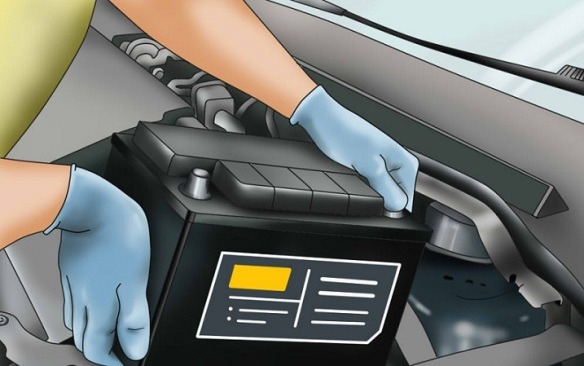Advancing Towards a Smarter Grid: Harnessing the Power of Lithium Batteries
Introduction:
The world is undergoing a massive transformation when it comes to energy consumption and production. The need for clean and sustainable energy sources has become paramount due to the growing concerns regarding climate change and the depletion of fossil fuels. One of the key components in this transition is the development of smarter grids, which can efficiently manage and distribute electricity. In recent years, lithium batteries have emerged as a promising solution to enhance the capabilities of these grids. This article explores the advancements in lithium battery technology and its potential in revolutionizing the energy landscape.
1. The Rise of Lithium Batteries:
Lithium-ion batteries have become the preferred choice for portable electronics due to their high energy density and long lifespan. However, their potential in the energy sector has been largely untapped until recently. With improved manufacturing processes and falling costs, lithium batteries have gained popularity as a storage solution for renewable energy sources such as solar and wind. The ability to store excess energy and discharge it when required makes lithium batteries an ideal component for a smarter grid.
2. Benefits of Lithium Batteries in Smarter Grids:
2.1. Grid Stabilization:
Renewable energy sources are intermittent in nature, meaning they produce electricity only when the sun is shining or the wind is blowing. This unpredictability makes it challenging to maintain grid stability. Lithium batteries can store excess energy during periods of high production and release it during low production, thereby balancing the supply and demand and ensuring grid stability. The grid can rely on stored energy during peak load times, reducing the need for expensive backup power plants.
2.2. Voltage Regulation:
Fluctuations in voltage can damage electrical equipment and disrupt power supply. Lithium batteries, with their rapid response time and high charge/discharge rates, can help regulate voltage levels and optimize power quality. By smoothing out voltage variations, these batteries improve the reliability and efficiency of the grid.
2.3. Peak Shaving:
Peak demand periods put immense stress on the grid infrastructure, leading to potential blackouts or brownouts. Lithium batteries can mitigate this issue by discharging stored energy during peak periods, reducing the strain on the grid. This concept, known as peak shaving, not only prevents power outages but also reduces the need for costly infrastructure upgrades.
3. Overcoming Challenges:
While lithium batteries offer significant advantages, there are still challenges to overcome for their widespread adoption in smarter grids.
3.1. Cost:
Despite the falling costs, lithium batteries are still relatively expensive compared to traditional grid infrastructure. Further advancements in manufacturing techniques and economies of scale are required to bring down the cost and make it economically feasible for grid-scale deployment.
3.2. Environmental Impact:
Lithium batteries, like any other technology, have an environmental impact. The extraction and disposal of lithium can have adverse effects on ecosystems. However, efforts are being made to develop more sustainable and recyclable battery technologies to minimize these concerns.
4. Conclusion:
The integration of lithium batteries in smarter grids holds tremendous potential in revolutionizing the energy landscape. With their ability to stabilize the grid, regulate voltage, and shave peak demand, these batteries can contribute to a more reliable, efficient, and sustainable energy system. However, addressing the challenges of cost and environmental impact is crucial for their widespread adoption. As technology continues to advance, lithium batteries are poised to play a pivotal role in advancing towards a smarter grid and achieving a cleaner and greener future.
-
 In the fast-paced and competitive world of manufacturing, efficiency is key to staying ahead of the competition. One often overlooked aspect of efficiency is the power source that keeps operations running smoothly. Industrial battery chargers play a vital role in powering the manufacturing sector, providing a reliable and sustainable energy solution. In this article, we will explore the benefits of...Læs mere
In the fast-paced and competitive world of manufacturing, efficiency is key to staying ahead of the competition. One often overlooked aspect of efficiency is the power source that keeps operations running smoothly. Industrial battery chargers play a vital role in powering the manufacturing sector, providing a reliable and sustainable energy solution. In this article, we will explore the benefits of...Læs mere -
 In recent years, there has been a significant advancement in the field of robotics, with intelligent mobile robots becoming increasingly prevalent in various industries. One crucial factor that has contributed to their development is the use of advanced lithium batteries. These batteries have revolutionized the way these robots operate, providing them with longer-lasting power and enhanced efficiency. Lithium batteries...Læs mere
In recent years, there has been a significant advancement in the field of robotics, with intelligent mobile robots becoming increasingly prevalent in various industries. One crucial factor that has contributed to their development is the use of advanced lithium batteries. These batteries have revolutionized the way these robots operate, providing them with longer-lasting power and enhanced efficiency. Lithium batteries...Læs mere -
 Lithium iron phosphate battery, as a lithium-ion battery with lithium iron phosphate (LiFePO?) as the positive electrode material and carbon (usually graphite) as the negative electrode material, occupies an important position in the field of modern energy storage with its unique performance and advantages. This article will explore the working principle, main characteristics and technical details of lithium iron phosphate...Læs mere
Lithium iron phosphate battery, as a lithium-ion battery with lithium iron phosphate (LiFePO?) as the positive electrode material and carbon (usually graphite) as the negative electrode material, occupies an important position in the field of modern energy storage with its unique performance and advantages. This article will explore the working principle, main characteristics and technical details of lithium iron phosphate...Læs mere -
 Introduction: In recent years, outdoor activities and adventures have gained immense popularity, with more and more people seeking solace and adventure in nature. As a result, the demand for advanced camping equipment and technology has increased exponentially. One such revolutionary innovation is the lithium camper battery. This article will discuss how lithium camper batteries have transformed outdoor adventures, providing campers...Læs mere
Introduction: In recent years, outdoor activities and adventures have gained immense popularity, with more and more people seeking solace and adventure in nature. As a result, the demand for advanced camping equipment and technology has increased exponentially. One such revolutionary innovation is the lithium camper battery. This article will discuss how lithium camper batteries have transformed outdoor adventures, providing campers...Læs mere -
 Locomotive starter batteries play a crucial role in the operation of trains. These batteries are responsible for providing the initial power necessary to start the locomotive's engine. Without a reliable starter battery, trains would not be able to move efficiently and effectively. In this article, we will discuss the importance of locomotive starter batteries, how they work, and the various...Læs mere
Locomotive starter batteries play a crucial role in the operation of trains. These batteries are responsible for providing the initial power necessary to start the locomotive's engine. Without a reliable starter battery, trains would not be able to move efficiently and effectively. In this article, we will discuss the importance of locomotive starter batteries, how they work, and the various...Læs mere -
 Introduction In recent years, the demand for high-performance and long-lasting energy solutions has been increasing rapidly. As a result, lithium iron phosphate (LiFePO4) 48V batteries have emerged as a popular choice in various industries, including renewable energy, electric vehicles, and off-grid power systems. This article aims to explore the features and benefits of LiFePO4 48V batteries, highlighting their high...Læs mere
Introduction In recent years, the demand for high-performance and long-lasting energy solutions has been increasing rapidly. As a result, lithium iron phosphate (LiFePO4) 48V batteries have emerged as a popular choice in various industries, including renewable energy, electric vehicles, and off-grid power systems. This article aims to explore the features and benefits of LiFePO4 48V batteries, highlighting their high...Læs mere -
 Electricity has become a significant part of our daily lives, powering almost everything we use. With the increase in the use of electric vehicles and solar energy, batteries have become essential for storing electrical energy. The 48V battery is one of the most popular batteries used in electric vehicles, solar systems, and other applications that require high power output. One...Læs mere
Electricity has become a significant part of our daily lives, powering almost everything we use. With the increase in the use of electric vehicles and solar energy, batteries have become essential for storing electrical energy. The 48V battery is one of the most popular batteries used in electric vehicles, solar systems, and other applications that require high power output. One...Læs mere


